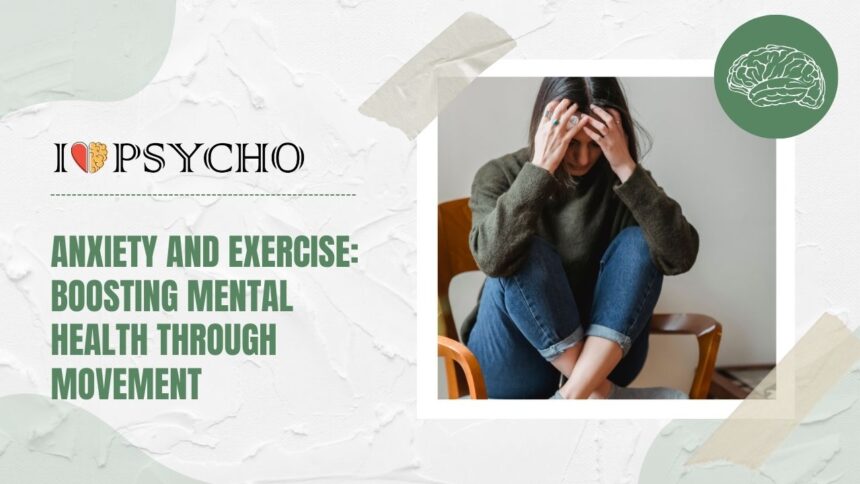Introduction to Anxiety and its Prevalence
Welcome to a journey towards better mental health through movement! Anxiety is a common struggle for many, impacting our daily lives and overall well-being. But fear not, as there is a powerful tool at our disposal: exercise. By incorporating physical activity into our routines, we can combat anxiety and boost our mental health. Join us as we explore the transformative benefits of exercise on anxiety management and discover how mindfulness in fitness plays a crucial role in this uplifting process.
How Exercise Can Help Reduce Anxiety
Exercise is a powerful tool in managing anxiety. When you engage in physical activity, your body releases endorphins, which are feel-good chemicals that can help reduce feelings of stress and anxiety. Whether it’s going for a run, practicing yoga, or lifting weights, moving your body can have a positive impact on your mental well-being.
Regular exercise not only improves your physical health but also contributes to better mental health. It can help increase self-esteem and confidence while reducing symptoms of anxiety. The act of focusing on your body’s movements during exercise can also shift your attention away from anxious thoughts, promoting mindfulness and relaxation.
Incorporating regular exercise into your routine doesn’t have to be complicated or time-consuming. Even short bursts of physical activity throughout the day can make a difference in how you feel mentally. Find activities that you enjoy and make them a priority in your schedule to reap the benefits for both your body and mind.
Remember that everyone’s journey with anxiety is unique, so what works for one person may not work for another. Experiment with different types of exercises to find what resonates best with you and brings you the most relief from anxious feelings.
The Importance of Mindfulness in Fitness
When it comes to fitness, the focus is often on physical exertion and visible results. However, the importance of mindfulness in fitness should not be overlooked. Mindfulness involves being present in the moment, paying attention to your thoughts and feelings without judgment.
Incorporating mindfulness into your fitness routine can enhance the mind-body connection, allowing you to fully experience each movement and exercise. It helps you tune into your body’s signals, better understand your limits, and prevent injuries by practicing proper form.
Mindfulness also aids in reducing stress and anxiety by bringing awareness to your breathing patterns during workouts. By focusing on each breath as you move through exercises, you can create a sense of calmness that carries over into other aspects of your life.
Integrating mindfulness techniques into your fitness regimen can lead to a more fulfilling and holistic approach towards health and well-being.
The Connection between Exercise and Mental Health
Exercise, beyond its physical benefits, has a profound impact on mental health. When we move our bodies, endorphins are released, acting as natural mood lifters. This chemical reaction can help reduce feelings of anxiety and stress.
Additionally, regular exercise promotes better sleep patterns, which are crucial for maintaining emotional well-being. Quality rest allows the mind to recharge and process emotions more effectively.
Engaging in physical activity also provides a healthy outlet for releasing pent-up energy and tension. Whether it’s through yoga, running, or dancing, finding an exercise that resonates with you can be a powerful tool in managing anxiety.
Moreover, the sense of accomplishment that comes from completing a workout can boost self-esteem and confidence levels. Setting and achieving fitness goals can translate into increased resilience when facing challenges in other areas of life.
Incorporating exercise into your routine is not just about staying fit; it’s about nurturing your mental health and overall well-being.
Types of Exercises that Benefit Anxiety
When it comes to managing anxiety through exercise, not all workouts are created equal. Different types of exercises can have varying impacts on your mental well-being.
Cardiovascular activities like running, cycling, or swimming are great for releasing endorphins and reducing stress levels. These high-intensity exercises can help clear your mind and boost your mood.
Yoga and Pilates focus on slow, intentional movements paired with deep breathing techniques. They promote relaxation, mindfulness, and body awareness – all essential components in combating anxiety.
Strength training not only improves physical health but also contributes to mental resilience. Lifting weights or doing bodyweight exercises can increase self-confidence and provide a sense of accomplishment.
Mindful activities such as tai chi or qigong combine gentle movements with meditation practices that help center the mind and reduce feelings of overwhelm.
Tips for Incorporating Exercise into Your Routine
Finding ways to incorporate exercise into your daily routine can be a game-changer when it comes to managing anxiety. Start small by setting achievable goals, whether it’s taking a 15-minute walk during your lunch break or doing a quick yoga session before bed.
Consider trying different types of workouts to keep things interesting and prevent burnout. This could include going for a run, attending a dance class, or even practicing meditation outdoors.
Get creative with your schedule – if mornings are hectic, squeeze in some stretches during TV commercials or opt for a bike ride after dinner. Remember that consistency is key; even short bursts of activity throughout the day can make a significant difference in how you feel.
Don’t forget to listen to your body and choose exercises that bring you joy rather than ones that feel like a chore. Whether it’s dancing around your living room or hitting the weights at the gym, find what works best for you and stick with it!
Personal Stories and Testimonials from Individuals Who Have Used Exercise to Manage Anxiety
Meet Sarah, a young professional who struggled with anxiety for years. She found solace in jogging, the rhythmic movement calming her mind as she pounded the pavement. With each step, she felt a sense of release and clarity that carried her through even the toughest days.
Then there’s Mark, a student dealing with overwhelming stress. He discovered yoga and its focus on breath and body awareness. Through regular practice, he learned to quiet his racing thoughts and find peace within himself.
And let’s not forget Emily, a busy mom juggling work and family responsibilities. She turned to dance classes as her form of self-care, finding joy in moving her body freely without judgment or expectations.
These are just a few examples of how individuals have used exercise to manage their anxiety successfully. Their stories serve as inspiration for anyone seeking relief from mental health struggles through movement.
Additional Strategies for Managing Anxiety Alongside Exercise
In addition to exercise, there are various strategies that can help manage anxiety effectively. One key aspect is maintaining a balanced diet rich in nutrients that support mental well-being. Consuming foods like fruits, vegetables, whole grains, and lean proteins can positively impact your mood and energy levels.
Practicing relaxation techniques such as deep breathing exercises or meditation can also aid in reducing feelings of stress and anxiety. These practices help calm the mind and promote a sense of inner peace amidst life’s challenges.
Engaging in activities you enjoy outside of exercise, whether it’s painting, gardening, or listening to music, can provide a much-needed break from anxious thoughts. Finding hobbies that bring joy and relaxation can be therapeutic for your mental health.
Prioritizing quality sleep is crucial for managing anxiety. Establishing a bedtime routine and creating a peaceful sleep environment can significantly improve your overall well-being. Quality rest allows your body and mind to recharge for the day ahead.
Seeking support from loved ones or professional therapists is another valuable strategy for coping with anxiety alongside regular exercise. Opening up about your feelings and receiving guidance from others can offer emotional relief during challenging times.
Conclusion: The Importance of Prioritizing Mental Health through Movement
Prioritizing your mental health through movement is a powerful way to manage anxiety. By incorporating exercise into your routine and staying mindful during physical activity, you can experience significant improvements in your overall well-being. Remember that the connection between exercise and mental health is undeniable, so make it a priority to take care of both your body and mind. Whether it’s going for a run, practicing yoga, or simply taking a walk outside, find what works best for you and commit to making it a regular part of your life. Your mental health deserves attention and care – prioritize it through movement today.








